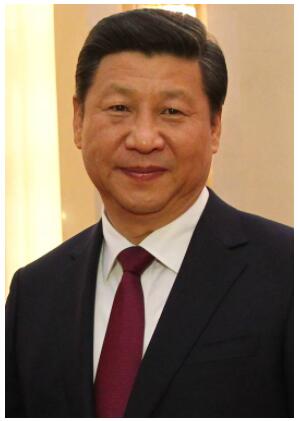The People’s Republic of China is ruled by the Chinese Communist Party (CCP). The CCP is the most powerful political organization to which all state institutions are de facto subordinate. Other parties that are tolerated by the CCP, such as the Democratic Federation or the Guomindang Revolutionary Committee, are de facto powerless.
Although the CCP has close to 90 million members, which is over 6% of the population, much of the political power is concentrated in the hands of a few people. The central decision-making body is the Central Committee of the CCP, which currently has 204 full members and 172 so-called “candidates” (without voting rights).
The core of the Central Committee, in turn, is the Politburo of the Central Committee of the CCP, which has 25 members and whose standing committee brings together the most powerful leaders of the PRC. The chairman of the Politburo is the general secretary of the CCP, currently Xi Jinping. He is the most politically powerful person in the PRC.
Important personnel and directional decisions of the party are determined by the party congress, which takes place every five years in autumn. Although positions are officially filled by election of the delegate plenum, all important personnel decisions are assigned in advance using internal nomenclature.
Since the beginning of the new millennium, new appointments have generally been relatively quiet. Recently, however, for the first time in a long time, tough measures against high-ranking party members were taken as part of anti-corruption campaigns. For example, former Politburo members Bo Xilai (2012) and Zhou Yongkang (2015) were expelled from the party and sentenced to life imprisonment in court proceedings.
According to computergees, the state organs of China are linked to the CCP’s party bureaucracy in many ways. The leading members of the Standing Committee of the Politburo always hold central positions in the most important state organs stipulated by the constitution: General Secretary Xi Jinping is also President of the State. Li Keqiang, the second most powerful political bureau member, is prime minister, Li Zhanshu is chairman of the National People’s Congress (NPC), and Wang Yang is chairman of the Chinese People’s Political Consultative Conference. Zhang Dejiang and Yu Zhengsheng are expected to be replaced by members of the newly appointed Standing Committee of the CCP Central Committee in late 2017.
Apart from the fact that all important state offices are held by leaders of the CCP, there are also so-called “party groups” in all ministries, offices, state-owned companies, universities, etc., which oversee the work of these institutions.
Another decisive power factor of the CCP is the direct access to the military, which still exists today. The Chinese People’s Liberation Army (PLA) is still subordinate to the Central Military Commission of the CCP. The chairman of the Central Military Commission is usually the general secretary of the CCP.
In addition to the military commission, there are other important departments in the party that have great influence. The Public Relations Department (formerly: Propaganda Department) is in charge of the entire media landscape in the PRC. The Discipline and Control Commission is a kind of parallel judicial system for party members that plays an important role in the fight against corruption. The internal security organs are subordinate to the Political and Legal Commission. The organization department manages the party’s nomenclature and personnel files. Various party schools serve as cadre forges for future generations of leaders.
The CCP’s ideological profile has changed steadily over the course of the PRC’s existence. The “four principles” proclaimed by Deng Xiaoping in 1979, according to which China should follow the socialist path, maintain the dictatorship of the proletariat, be led by the CCP and heed Marxism-Leninism and the ideas of Mao Zedong, still apply.
Although this core ideology is still anchored in the party statutes, it has been supplemented by diverse contributions and in some cases pushed into the background. Jiang Zemin’s theory of “triple representation”, which was incorporated into the party statute in 2002, claims to represent not only the “masses”, but also the “progressive culture” and the “progressive productive forces” (entrepreneurs), thus the principle of a “dictatorship of the proletariat ”was softened. The “scientific development concept” propagated by Hu Jintao and his idea of a “harmonious society”, on the other hand, express Hu’s more socio-political orientation. At the 19th party congress at the end of 2017, Xi Jinping’s ideological core ideas, which are considered the theory of a”Socialism with Chinese characteristics in a new era” will be included in the party statute.
